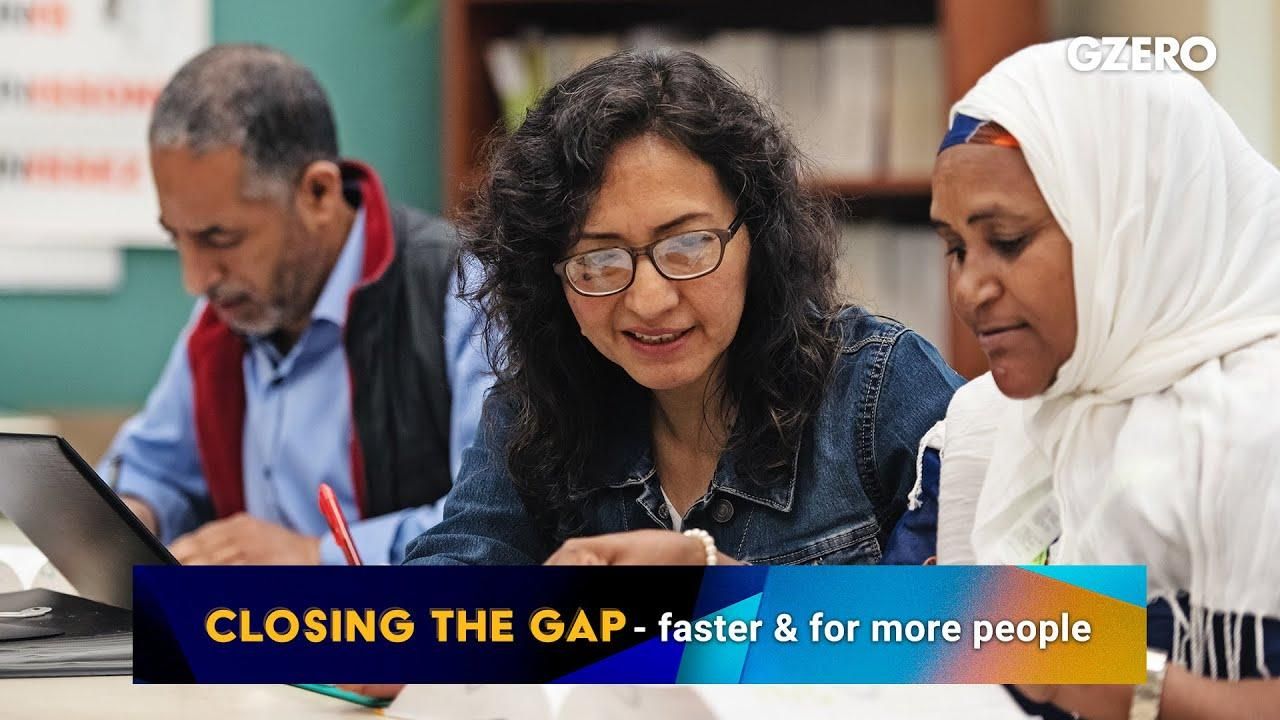
In the next decade, 70% of new value in the global economy will come from digital businesses. But more than 3.5 billion people without internet access will be cut off, and not all of them will live in the developing world.
“This is very much a global challenge,” Eurasia Group senior analyst Ali Wyne says in a livestream conversation hosted by GZERO in partnership with Visa.
Much of the developing world went digital during the pandemic. We see this, for instance: in Nepal, where it pushed people to go cashless and women in rural areas to embrace digital banking. Yet many remain unbanked, and that means they struggle to create wealth because they only deal in cash, according to Visa's Rubén Salazar. Having no bank account also makes it harder to send remittances, as we learn from a Mexican recipient and from the World Bank's Dilip Ratha.
There is hope, though. For Nextrade's Kati Suominen, digital payments are helping small businesses around the world reach new markets. The global move toward online shopping is a huge opportunity to scale, adds PayPal's Usman Ahmed.
In short, digital adoption faces many challenges but also huge opportunities to make things better for those who have the least.
Watch our recent livestream discussion on remittances and other tools for economic empowerment.
- The world economy's digital destiny - GZERO Media ›
- The Graphic Truth: The digital payment boom - GZERO Media ›
- Connecting the world: the power of digital trade - GZERO Media ›
- How can we get unbanked people to go digital? - GZERO Media ›
- Will Nepal cash out? - GZERO Media ›
- Lowering costs of poverty with digital & economic access - GZERO ... ›